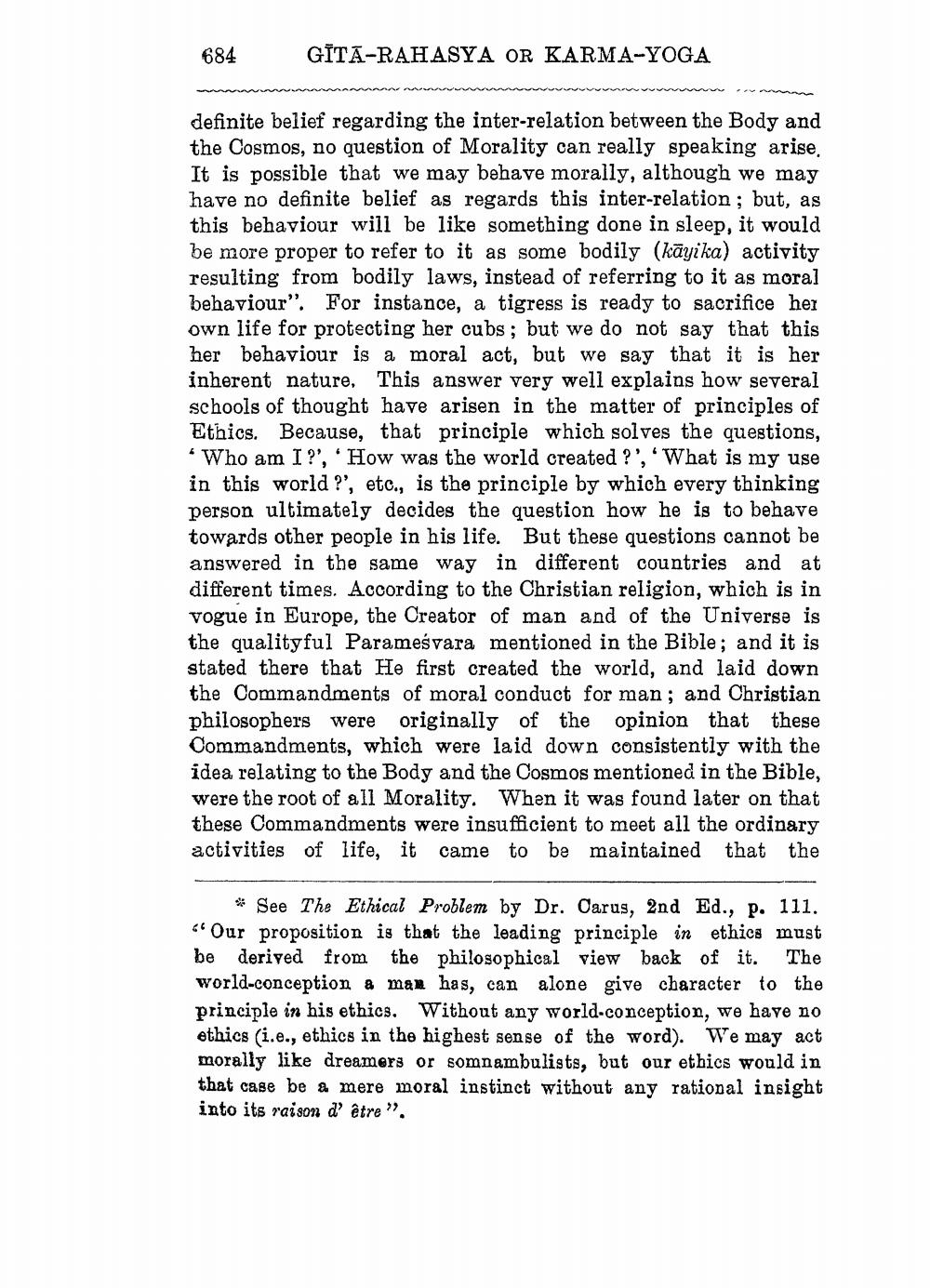________________
684
GĪTA-RAHASYA OR KARMA-YOGA
manner www
w wwwwwwwwwwwwwwwwwwwwww
definite belief regarding the inter-relation between the Body and the Cosmos, no question of Morality can really speaking arise, It is possible that we may behave morally, although we may have no definite belief as regards this inter-relation ; but, as this behaviour will be like something done in sleep, it would be more proper to refer to it as some bodily (kāyika) activity resulting from bodily laws, instead of referring to it as moral behaviour". For instance, a tigress is ready to sacrifice her own life for protecting her cubs; but we do not say that this her behaviour is a moral act, but we say that it is her inherent nature. This answer very well explains how several schools of thought have arisen in the matter of principles of Ethics. Because, that principle which solves the questions,
Who am I?', 'How was the world created ?', 'What is my use in this world ?', etc., is the principle by which every thinking person ultimately decides the question how he is to behave towards other people in his life. But these questions cannot be answered in the same way in different countries and at different times. According to the Christian religion, which is in vogue in Europe, the Creator of man and of the Universe is the qualityful Parameśvara mentioned in the Bible; and it is stated there that He first created the world, and laid down the Commandments of moral conduct for man; and Christian philosophers were originally of the opinion that these Commandments, which were laid down consistently with the idea relating to the Body and the Cosmos mentioned in the Bible, were the root of all Morality. When it was found later on that these Commandments were insufficient to meet all the ordinary activities of life, it came to be maintained that the
* See The Ethical Problem by Dr. Carus, 2nd Ed., p. 111. “Our proposition is that the leading principle in ethics must be derived from the philosophical view back of it. The world-conception a man has, can alone give character to the principle in his ethics. Without any world-conception, we have no ethics (i.e., ethics in the highest sense of the word). We may act morally like dreamers or somnambulists, but our ethics would in that case be a mere moral instinct without any rational insight into its raison d' être".




